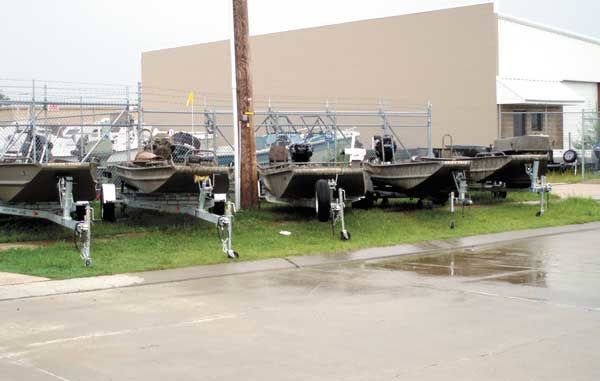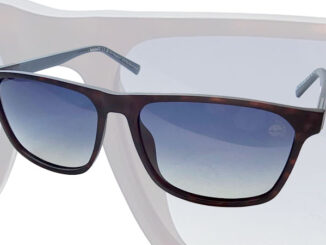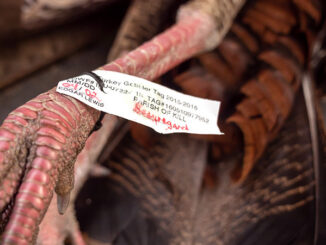
Follow the advice of the state’s former deer study leader, and you’ll make your small property the one place every buck wants to come to.
Each year when duck season closes in January, most hunters simply park their mud boats and forget about them. We usually have other things such as fishing, cruising and water skiing on our minds. Now that summer is winding down, it is time to wake up the duck hunters. September is here, and with it comes the annual teal season, which this year is 16 days long from Sept. 13-28. I like to refer to it as the official wake-up call for duck hunters.
Most of those duck boats have not been run since late January when the duck season closed. The wise hunters will heed this wake-up call, and get their mud boats out of storage now so that they’ll have plenty of time to correct any problems that may have cropped up while the engine was not being used.
This is the time when mud-boat dealers get booked up with service. Sometimes the backlog can be many weeks. Are you willing to take a chance that your boat will crank right up and run perfectly? If it doesn’t run properly, you could be jeopardizing your hunting season.
There is approximately a six-week interval between teal season and the regular duck season. If you use teal season as an excuse to take your boat out and give it a good shake down, you should have plenty of time before duck season to make any necessary changes or repairs.
Before you hook up your boat and head out to the boat launch, you may want to perform some of the general maintenance that every boat requires. I like to start out with the trailer and work my way up from there.
First, check the air pressure in your trailer tires. While you are checking the air pressure, also inspect the condition of the tires. If the boat was left in storage out in the yard exposed to the sun and rain, it is possible that the tires may be starting to dry rot. You will notice cracking all along the side walls of the tires if this is happening.
You should also check the condition of the tire tread. Worn tires have an increased chance of blow outs on the road.
The next check is a little more difficult. Jack up your trailer one side at a time and check the trailer bearings. You can do this by gripping the tire and trying to rock it back and forth. If there is play or movement back and forth, then the bearings should be removed and inspected.
Next, spin the tire and listen for any growling or grinding noise, as this would also be a sign of a bad bearing. If the bearings check good, then pump some fresh grease in the bearing protectors, and you can finish the trailer inspection with a general visual check of the frame, winch, dolly jack and boards.
The motor is the most important component of your duck boat. Take your time and do thorough maintenance. I like to change spark plugs first, and while I have the plugs out of the engine, I also perform a compression check to be sure I don’t have any serious problems such as a stuck valve.
Any and all fuel filters should be changed, and the condition of gas in the fuel tank should be checked.
Grease all pressure fittings on your motor. This should include the tilt tube, steering tube and the drive-shaft tube.
One of the most overlooked items on a mud motor is the propeller. Remove the propeller from the engine, and inspect behind it for any trash that could damage your prop shaft seals. Inspect your propeller blades very carefully. Mud motors operate under extremely adverse conditions, and propeller blades are easily worn, bent or chipped. Rarely do the blades wear evenly, and this uneven wear can cause excessive vibration, which may damage your engine or boat. If you detect any wear, the prop should be replaced.
Whether you replace or re-use your old propeller, be sure to coat the prop shaft with never-seize, install the prop and tighten the prop nut to the proper torque setting.
Checking your boat accessories should also be high on your priority list. Start with your battery. Clean the terminals, check the condition of the battery with a battery load tester and, if necessary, charge the battery.
Next check all other accessories such as bilge pump, navigation lights, spotlights and power plug-ins for your cell phone or Q-beam.
If your boat is equipped with a fold-up hunting blind, then take the time to stand the blind up and check for any repairs that may be needed. Many duck boats in our area use the pop-up grass blinds. That grass is a natural product, and may need to be replaced if the old grass is too badly weathered.
It is also a good idea to check your safety gear. A quick inventory of life jackets, throw cushion, fire extinguisher (fully charged), paddle and all other required safety items could save you many dollars should you be checked by the Coast Guard or DWF.
Now that you have thoroughly checked your rig, it is time to take it to the water for a short cruise. It seems that no matter how thorough you are, there is no substitute for a shake-down cruise on the lake.
You will want to observe every aspect of your engine while you are on the water. Check the idle, acceleration and top-end speed. If you find that the engine is not performing properly or if there are any abnormal noises or vibrations, make a note of this so that you can investigate the problem when you get back home.
If you heed the wake-up call and use teal season as an opportunity to prepare, upgrade or repair your boat, the regular duck season should be trouble free. Be safe and have a great hunting season.
If you have any questions about your boat, motor or trailer you can contact me at theboatdr@yahoo.com.


